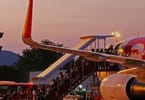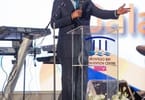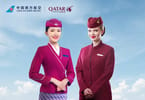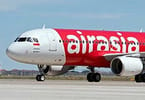Continental Airlines Inc., after calling off a merger with United Airlines two years ago, would resume consolidation efforts to remain competitive, Chief Executive Officer Jeff Smisek said.
Continental, the fourth-largest U.S. carrier, will keep monitoring the progress of Delta Air Lines Inc. following its 2008 merger with Northwest Airlines Corp., he said today at a JPMorgan Chase & Co. aviation conference in New York. Continental’s decision to avoid joining UAL Corp.’s United in April 2008 was correct at the time, he said.
“We’ll continue to watch competitive dynamics,” Smisek said. “If we think it’s in our best interest to bulk up defensively, we’ll do so. But I think it’s premature to make that decision at this time.”
United CEO Glenn Tilton said in January that a merger involving U.S. carriers would be likely in 12 to 24 months, and that the path toward combinations is being smoothed by global alliances. Tilton has advocated U.S. airline industry consolidation since at least 2004.
“Continental is a prize that anybody would want, and it would be a very good fit for United,” Ray Neidl, a New York- based independent airline analyst, said in an interview. “Continental has got a good-sized system, but by no means is it equal to the Delta giant.”
Continental rose 91 cents, or 4.5 percent, to $21.12 at 12:35 p.m. in New York Stock Exchange composite trading, after reaching $21.47, the highest intraday since Jan. 21. UAL gained $1.48, or 8.5 percent, to $19 in Nasdaq Stock Market trading after reporting yesterday that revenue for each passenger flown a mile rose more than analysts estimated.
‘Their Incompetence’
Smisek also said a new federal rule intended to cut airport delays may result in more flight cancellations. Starting in April, airlines will be required to let travelers off planes stuck on airport tarmacs after three hours or face fines of $27,500 per passenger. Lengthy tarmac delays are rare, and often are caused by the outdated U.S. air-traffic control system, he said.
“That means we’re going to cancel a lot of flights,” Smisek said. “The government sticks us on the ground because they refuse to invest in the highway in the sky, and then they fine us when, as a result of their incompetence, we’re held on the ground.”
Bill Mosley, a spokesman for the U.S. Department of Transportation, countered that “carriers have it within their power to schedule flights more realistically” by having spare planes and crews available and rebooking passengers on other flights when delays or cancellations are unavoidable.
“Under the department’s new rules, consumers can choose carriers that do not have tarmac delays, do not routinely cancel their flights and will provide adequate assistance to passengers,” he said.
New Partners
Continental joined United in the Star alliance of carriers last year and the two U.S. airlines are part of a joint venture with Deutsche Lufthansa AG and Air Canada across the Atlantic. Continental and United have asked regulators for permission to combine flight schedules and fares across the Pacific with All Nippon Airways Co., their partner in Star.
“We’re finding great results in the Star alliance,” Smisek said. The carrier left the SkyTeam group of carriers, which includes Delta and Alitalia SpA, to join Star. “That’s been a home run for us.”
He said the airline, based in Houston, is carrying about 2.5 more passengers per seat with its Star partners than it did with SkyTeam.
ŠTA UZIMATI IZ OVOG ČLANKA:
- “The government sticks us on the ground because they refuse to invest in the highway in the sky, and then they fine us when, as a result of their incompetence, we're held on the ground.
- “Continental is a prize that anybody would want, and it would be a very good fit for United,” Ray Neidl, a New York- based independent airline analyst, said in an interview.
- Department of Transportation, countered that “carriers have it within their power to schedule flights more realistically” by having spare planes and crews available and rebooking passengers on other flights when delays or cancellations are unavoidable.






















